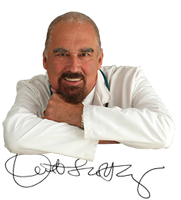A sweet friend asked me for help with her mother today. It set me thinking a whole sequence of thoughts that it would be good to share.
My friend thinks I’m a genius and therefore I would know just exactly what to suggest. How wrong she was! I may or may not be clever but if I am it’s because I know what QUESTIONS to ask, not what answers to give!
And it dawned on me that doctors today just don’t ask enough questions. In fact they are mainly smarta**es who THINK they know the answers. It’s always dangerous to think you know anything, until you have got all the data together.
According to my friend, her Mum was very low in health and spirits. She was “shaking” almost constantly. What should I give her (to cure her)?
Well, there is always homeopathic Rescue Remedy, of course. That’s the ultimate dumb no-brainer in a desperate situation. It works like magic but, of course, gives no diagnostic help whatever, towards finding out what the problem really is.
My first question, for example, was around what was her Mum eating. Not much apparently. So hypoglycemia immediately came to mind—that leads to shaking—in fact in the bad old days, insulin to suddenly and drastically lower blood sugar was an early form of psychiatric convulsion therapy (only the psychiatrists would even consider a “therapy” that is something most doctors are trying to cure).
I suggested a cup of sweetened tea—call me back in 15 mins, I said. If it helped, that could suggest blood sugar issues.
Oh no, said my friend, innocently. It can’t be that. She’s been in bad shape for 18 months, shaking all the time.
What does that mean, I asked her: shaking every day, every minute of every day, just a lot, most weeks, most days? If the shaking comes in attacks or episodes, how long do they typically last? Has she got steadily worse over the whole 18-month period? Or attacks more frequent perhaps? See how the questions multiply, once you pick up the scent with your nose!
Well, you don’t need the rest of that conversation. You get the point.
Science—including medical science—is not so much about clever answers as clever questions. You have to trawl up the data, often against resistance. I have had patients take the line: Do we have to have all these questions, can’t you just tell me what’s wrong? (no, really)!
Yet it’s obvious that doctors don’t ask many questions. They probably don’t know WHAT to ask anyway. But with talking to patients for just a few minutes at a time, how can you possibly get to the truth?1

From the UK Independent
In Sweden, the average consultation time is 20 minutes; 2 minutes in China; 6.9 minutes in Slovenia; and 15 minutes in France. In the United States, the average time has increased steadily by 12 seconds per year, from 15.56 minutes in 1993 to 21.07 minutes in 2012. In the United Kingdom, the average time increased by 4.2 seconds per year, from 5 minutes in 1952 to 9.22 minutes in 2014.
But I know some doctors offer a very much shorter consultation than the average. As little as 3 minutes in some practices.
There are general variations among doctors, of course. Several studies have shown that older doctors have longer consultations. Women doctors have longer consultations than their male counterparts. Professionals with a social orientation and leaning more towards general practice and mental health also have longer consultations.
The point is, as decided by The Regional Council of Medicine of Sao Paulo (Brazil) “There is no legal determination in any sphere on the length of time for medical consultation and the professional must to abide by the fulfillment of the ethical principles acting with the maximum zeal and the best of their professional capacity.”2
In summary, consultation times range from 48 seconds in Bangladesh to 22.5 minutes in Sweden. Over half the world’s population (represented by 18 countries) patients get 5 minutes or less consultation time.3
Questions That Interested Me

Many of you know that back in the 1980s and 1990s I earned the epithet the world’s “Number One Allergy Detective,” and so I was. I worked like a feverish Sherlock Holmes to uncover the real (hidden) story. Often it was food.
Questions that were very helpful and revealing were like these:
And always my killer number #1 question: do you ever have days when you are completely symptom free? (the point being, of course, that if you can have zero symptoms one day, you could have zero symptoms any and every day! We just need to find the cause…)
The overall philosophy is that diseases are caused. Orthodox medicine is obsessed with the concept of the “broken” patients; somebody busted; it’s all gone wrong. Their approach is, “Well we can manage your illness throughout your life… keep you going. But there is no cure for this.”
It’s beyond their comprehension, seemingly, that Nature can fix things. That there is such a thing as healing, repair, recovery. They don’t even try for that. All they want to do is “manage” your problem and so, by definition, keep you sick.
Nowadays we have so many things that are supposed to be permanent (cancer, Alzheimer’s, diabetes, autoimmune disease), the doctor doesn’t try for the ultimate resource: full and proper healing.
It’s the same in respect of the immune system. That’s very pertinent today. Doctors seem to have come to a position where they believe the immune system is not really any good. It can’t defend us. We are vulnerable to viruses, microbes, parasites, etc. It has to be supplanted by vaccinations, drugs, surgery and other medical clap traps, which will do the job instead of or better than Nature… As if!
It’s all great for industry profits, naturally. But it’s not much good for the individual. And of course any doctor that bucks this lunatic trend is heading for destruction; they will take out such a physician, castigate and castrate him/her. They don’t WANT a 30- 60 minute consultation system, with the implication of a deeper, more meaningful diagnosis. They want a 3 – 5 minute system, shallow and fast, and have often decided what treatment to give without asking ANY questions!
It’s not real medicine; it’s pretend. But you knew that.
To your good health,
References:
1. http://www.medicalhealthcaremanagement.co.uk/how-long-should-a-consultation-last/
2. https://www.medwave.cl/link.cgi/English/Features/Essays/7266.act
3. https://www.healio.com/news/primary-care/20171109/average-pcp-visit-less-than-5-minutes-for-half-the-worlds-population
The post Real Medicine Vs. Pretend Medicine appeared first on Dr. Keith Scott-Mumby.

